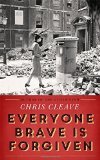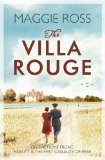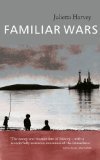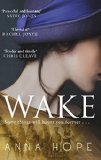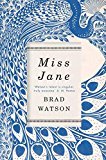 Source: Free review copy received from publisher
Source: Free review copy received from publisher
Five words from the blurb: deformity, isolated, rural, community, acceptance
Miss Jane is a powerful story about a woman growing up in rural Mississippi at the beginning of the 20th century. Jane is born with a genital deformity that causes her to be incontinent. The book shows how this isolates her from society and how she comes to terms with her condition.
It was beautifully written and felt authentically of-it’s time. It reminded me of The Yearling by Marjorie Kinnan Rawlings, a book written during this period (and one of my all-time favourites). The plot was simple and the pace of the book was slow, but this didn’t matter as I was captivated by the atmospheric detail of day-to-day life in this rural community.
Miss Jane captured the coming-of-age experience. It was packed with emotion and I felt I completely understood Jane’s predicament. The nature of her deformity meant that there were some explicit passages in the book, but these were all relevant to the plot, and perfectly captured the difficulty faced by teenagers trying understanding what is normal – especially in a time before the Internet, or even books, were easily available.
Despite Jane’s isolation, she began to be interested in boys. It was a slow. gradual accretion, this new awareness. Of boys as boys, that is, strange creatures, like another species retaining the general physical qualities of her own but with hidden secrets, secret differences.
I particularly liked the way the book forced the reader to think about the important things in life and how much a person’s happiness relies on conforming with society’s “norms”.
Miss Jane was different from anything I’ve read before. Its absorbing, original narrative meant it ended up becoming my favourite novel of 2016. I highly recommend it!

.

